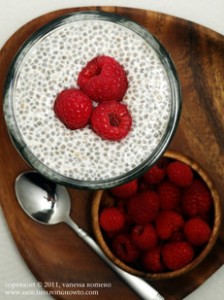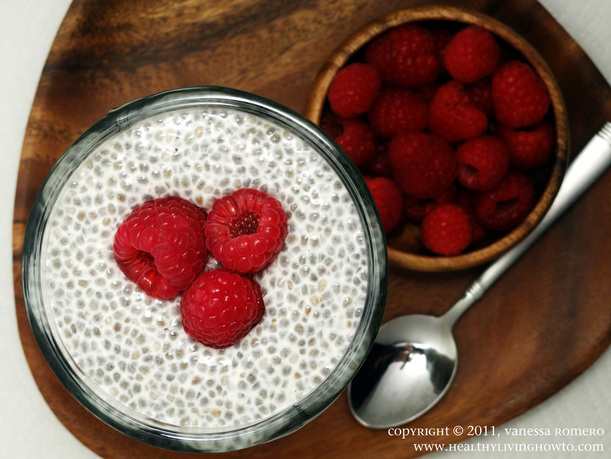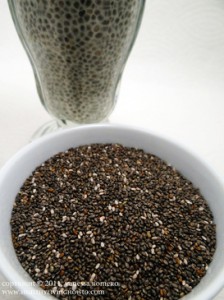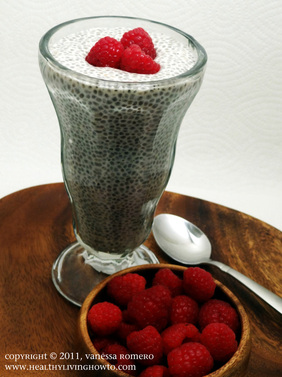Chia seeds, Salvia hispanica L., were originally cultivated by the Toltec and Teotiahuán civilizations. Later with the arrival of the Atzecs and Mayans in Mexico, chia became a dietary staple. Chia was not only recognized for its nutritional qualities but also for its invigorating properties and viewed as a sacred food and medicine.
Aztecs used flour made from roasted chia seeds in a variety of energizing gruels, beverages, and food bars. Along with other Nahua natives, they also used chia whole, ground, raw, and roasted for a variety of ailments. They combined chia with many other herbs for medicinal purposes and used chia oil as an emollient for skin.
Chia's existence was threatened with the arrival in the Americas of the Spanish Conquistadors. The invading Europeans banned any foods that were linked to traditional Atzec religion or tradition.
Nutritional Benefits
Chia seeds are rich in omega-3 fatty acids, fiber, antioxidants, and protein. These little seeds have the highest-known percentage of omega-3 among plants. Chia seeds are an excellent source of calcium, phosphorus, magnesium, potassium, iron, zinc, and copper. They have six times more calcium, eleven times more phosphorus, and five times more potassium than milk. Chia is so enriched with antioxidants they can be stored unrefrigerated with no concern of the oils going rancid. The most important antioxidants in chia are chlorogenic acid, caffeic acid, myricetin, quercetin and kaempferol flavonols. These antioxidants are more effective than both vitamin C and E in their protective qualities. A serving of chia seeds is three tablespoons or a little over an ounce and provides 140 calories, 10g of fat, 14 g of carbohydrates, 12g of fiber and 5g of protein.
 Health Benefits
Health Benefits
The health benefits from regular consumption of chia seeds are wide and varied. Some of these include:
-Improves cardiovascular health
-Relief from fatigue/low energy
-Supports healthy digestion & detoxification
-Regulates blood pressure
-Reduces cholesterol
-Stabilizes blood sugar
-Reduces pre-menstrual & menopausal symptoms
-Reduces cravings for sweets & carbohydrates
-and many more…..
Dr. Wayne Coates, the world's foremost educator and researcher on chia seeds puts it this way,
If people were eating superfoods like chia, they would be a lot healthier and have a lot fewer health problems. It certainly would help their health situation, let's put it that way, in one way or another. I'm not saying exactly how it would help any particular individual, but it would definitely help them.
Where to Find
I recently spotted a 2 lb. bag of organic chia seeds at Costco. It was the first time I have purchased them there. If your Costco doesn't carry chia or if you aren't a member, health food stores, vitamin stores, food co-ops and Whole Foods carries them. If you still can't find them, then your next option is to buy them online, Navitas Naturals Organic Chia Seeds, is a good and reputable brand.
How to Use
Chia seeds are water-loving and will soak up ten to twelve times their weight. The seeds are very mild tasting and actually quite fun to eat. Chia will help bind and thicken smoothies, jams and puddings. Chia gel, which is just water mixed with chia seeds, can be used as an egg replacer. My favorite way to use chia is to make a pudding with almond milk, vanilla and stevia. It has fast replaced my after dinner dark chocolate ritual. The internet is full of recipes with creative uses for chia seeds.
Vanilla Chia Pudding
Prep Time: 1 minute
Chill Time: 60 minutes (or longer)
Serves: 2
Ingredients
- 1 1/2 c. Unsweetened Almond Milk
- 1/4 c. Chia Seeds
- 1 tsp. Vanilla Extract
- 28 drops NuNaturals Pure Liquid Vanilla Stevia
Directions
- Put all ingredients in a Mason jar, cover tightly and shake.
- Refrigerate for 10 minutes and then shake again.
- Return to refrigerator for 50 minutes or longer.
- Serve with fresh berries and enjoy!


